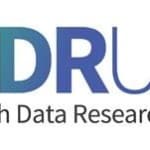
HDR UK opens applications for Health Data Science Black Internship Programme 2022
About the programme Overview Run by Health Data Research UK (HDR UK) and the UK Health Data Research Alliance (the ‘Alliance’) in partnership with 10,000 Black Interns initiative, our Health Data Science Black Internship Programme provides an exciting new endeavour for early career Black data scientists who are currently heavily under-represented within the health data science. Our Health Data Science Black Internship Programme is just...

 Accessibility options
Accessibility options Translate the page
Translate the page







